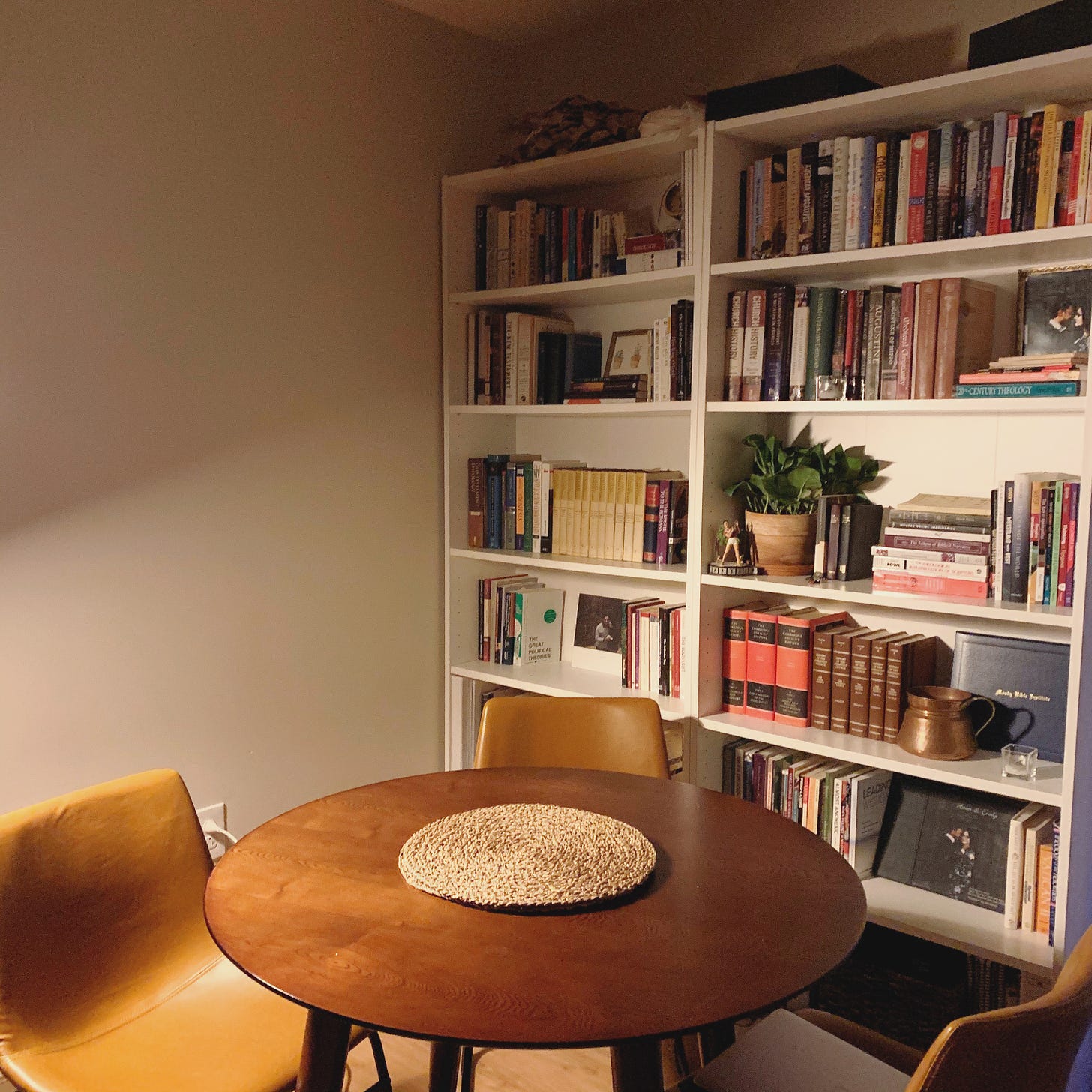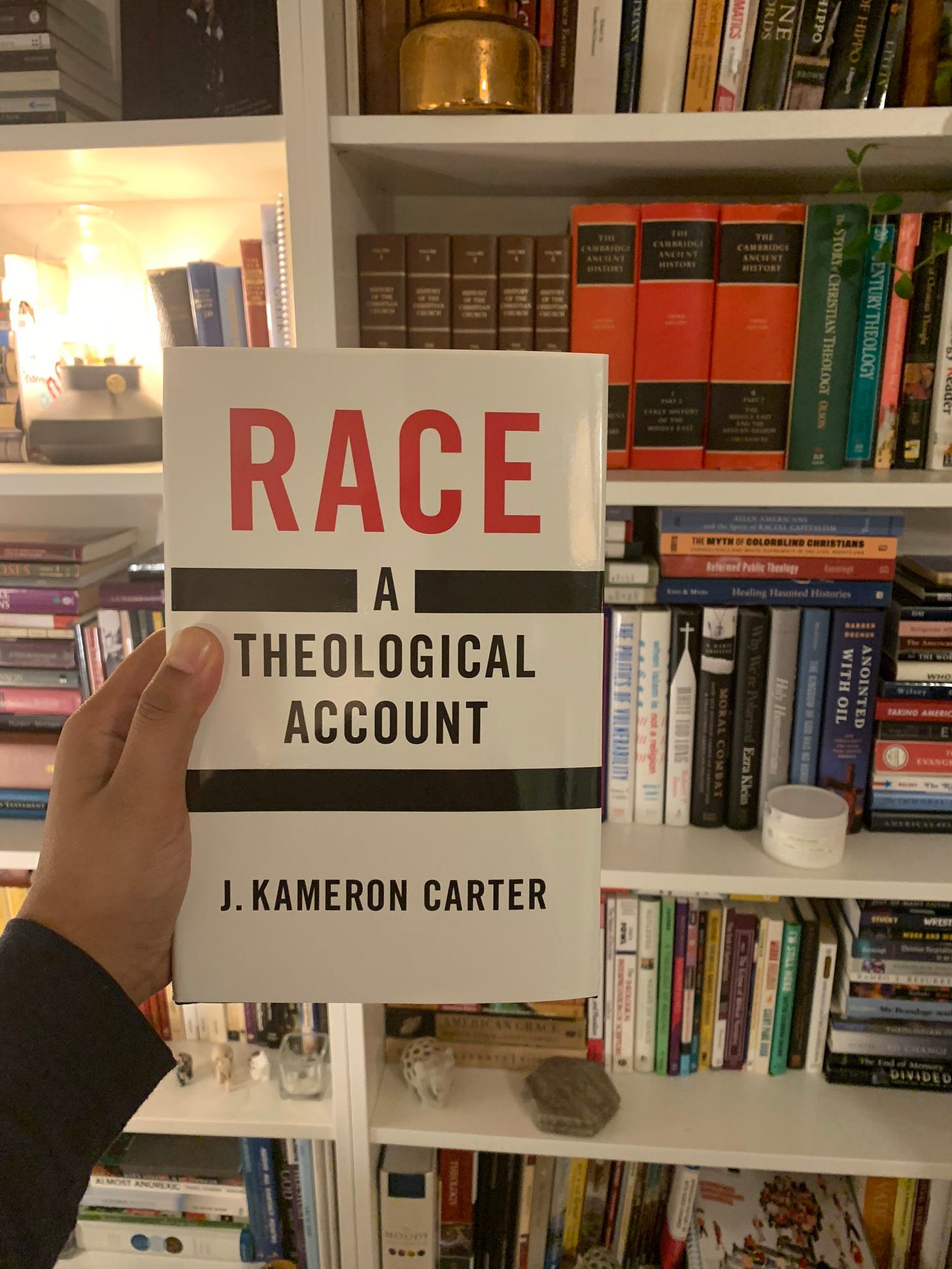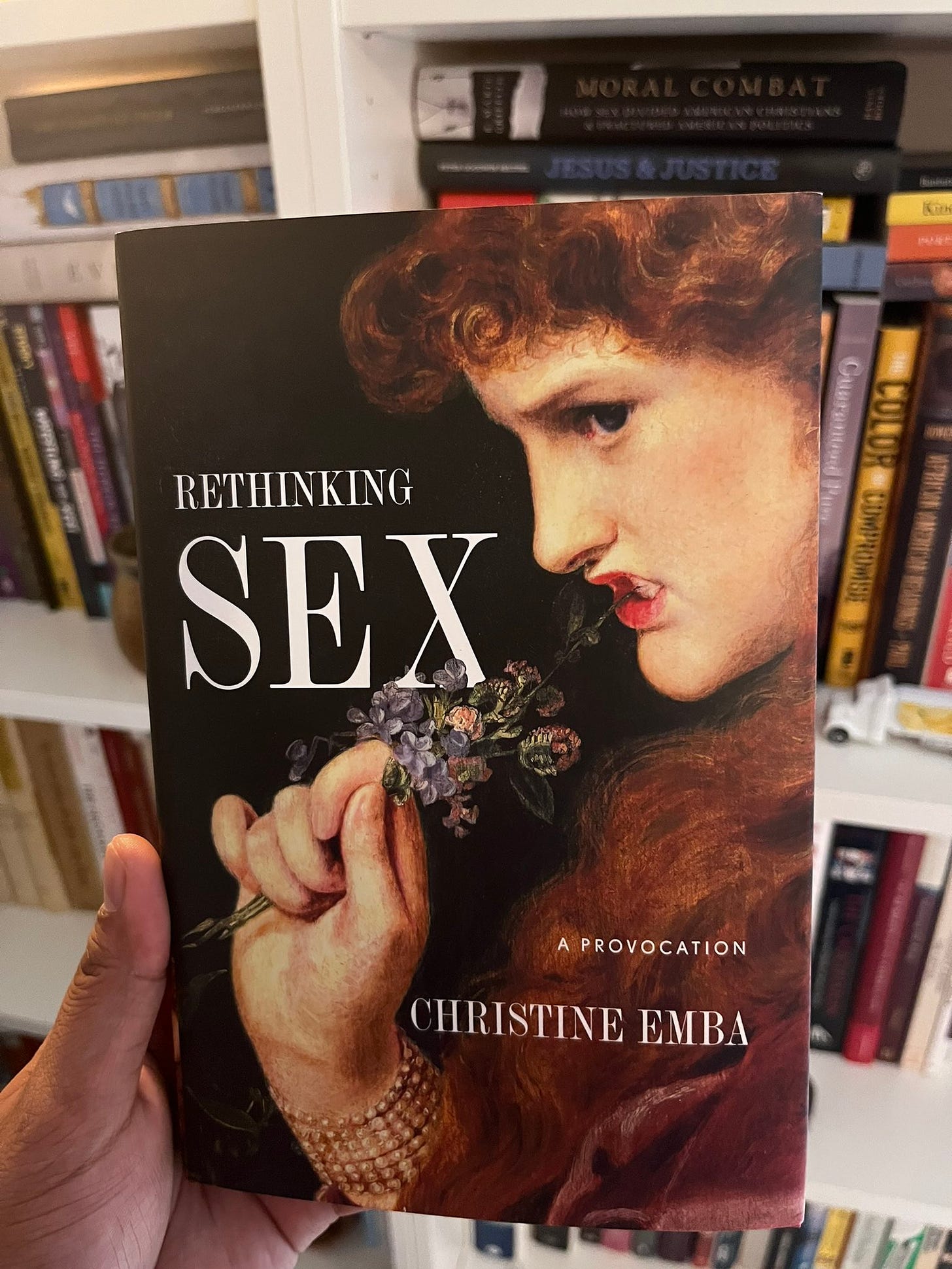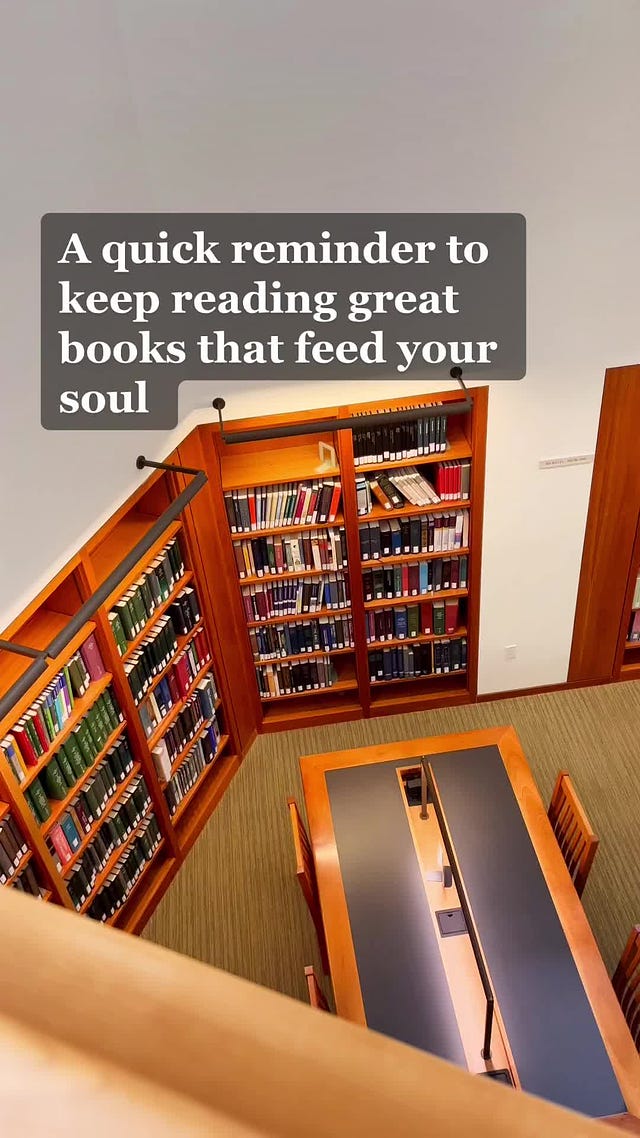I’ve tried on several occasions to become a Kindle reader. The benefits are obvious. Yet, I’ve never been able to commit. The discounted prices, the seamless notetaking, the multi-device accessibility—and all I’m left with is a feeling of regret.
Perhaps that is a bit dramatic. Let me explain.
I’ve always found a great sense of identity in my bookshelves. Even before I was much of a reader this was true. I remember stealing books from my dad’s study as a child and adding them to the “personal collection” in my room. When friends would come over I’d make sure they were all neatly aligned on my little bookshelf.
In undergrad I began the dangerous habit of keeping track of the books that professors and peers recommended. When I saved up a few dollars, I’d purchase one or two. Along with my regular course readings, my library began growing quickly.
Naturally, my preoccupation with my own bookshelves made me attentive to others’ bookshelves. Whether it was in a friend’s dorm room, a church library, or a professor’s office, I spent hours scanning shelves trying to make sense of what was before me. A reader’s bookshelves—as I can attest to—is their heart on display. You can learn a lot about a reader based on the books they display front and center versus those tucked away in a bottom corner, the way books are organized (by genre, author, color, etc.?), if they are all vertically shelved or if horizontal stacks are spread throughout, if the reader adds trinkets and pictures to their shelf or not …
I am perhaps the farthest thing from an artist. But I imagine those who paint or draw or create make every person, tree, and shade of color intentional. I approach my bookshelves with the same intentionality. Every book is placed next to another for a reason and the interwoven photos and tokens—like my collection of elephants or Elvis figurine—all tell a story.
As a reader (and learner), my bookshelves exemplify how I make sense of the world. Just as my bookshelves are a lens into my mind, the books I read are all various sets of lenses through which I can perceive the world. Sometimes you open a book and put on the metaphorical “lenses” and realize they’re too blurry or maybe they’re cracked, so you put the book back on the shelf quickly. Other books are long, and although the lenses may seem tinted, once your eyes adjust you realize that the “tint” allows you to see the same object or event in an entirely new way. And on the rare occasion, you read an author whose lens is so wonderful that you can never see the world the same way again.
When folks see my bookshelves, they place me in proximity to the authors on my shelves. Looking eye-level at my most prominent bookshelf (or at my Zoom background for the past year), you’ll see James Baldwin and Howard Thurman, Kristen Du Mez and Heath Carter, John Calvin and Karl Barth, Kevin Vanhoozer and George Lindbeck, Mark Noll and Darren Dochuk, Norman Wirzba and Jonathan Tran, Christine Emba and Jay Kaspian Kang. But if you look farther (…and sometimes behind), you will also find my copy of the “Moody Bible Commentary,” Donald Miller’s Scary Close, A. W. Tozer’s collected works, and Larry Crab’s complementarian manifesto Fully Alive. All of these books, at one point in time, were (and are) important to me. They tell the story of my own journey as a learner—a story I love to tell.
Bookshelves, in this way, build community. They invite others into one’s story. There is so much joy in the experience of finding a book on someone’s shelf that was meaningful to me and hearing how it impacted the reader. This will be one of the greatest things I’ll miss about seminary—this wonderful moment where two people converge at the intersection of a shared book. Sometimes this colliding leads to friendly debate, other times it leads to lively discussion, but almost always it leads to some sort of friendship. This is the power of a good book.
This week, I’m tasked with packing up my bookshelves, one of the (literal) burdens us hard-copy connoisseurs face. But, I can say for certain that even with all the extra boxes, the heavy lifting, and the inevitable sore back, I still don’t have any desire to switch to Kindle.
All that awaits me now is a blank canvas of empty walls and bookshelves to tell a new story.
See you in MKE, friends.
Reading:
Jeffrey Stout, “On Our Interest in Getting Things Right: Pragmatism without Narcissism” in New Pragmatists, Cheryl Misak, ed. (Oxford University Press, 2007)
Bruce McCormack, “Revelation and History in Transfoundationalist Perspective: Karl Barth's Theological Epistemology in Conversation with a Schleiermacherian Tradition” in The Journal of Religion, Jan. 1998, Vol. 78, No. 1
For more of what I’m reading — follow me on Twitter and Goodreads
Watching:
Abbott Elementary (Hulu)
“Jesus and Dogs, or How to Command a Friend” (Lecture) - John Bowlin
Listening:
Harry’s House (Album) - Harry Styles
Cooped Up (feat. Roddy Rich) - Post Malone









